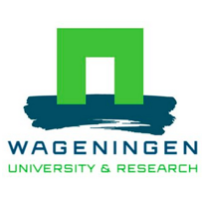
Organiser's description (via Wageningen UR):
Are we eating at the expense of the rest of nature? Is it possible, in the short term, to have a food system in which everyone has healthy food to eat that has been produced with respect for animals, plants, the soil and humankind? National and international scientists will engage with the audience on these and other issues during the symposium ‘The Environmental Impact of Food Systems’. The symposium will be hosted at Wageningen University & Research (WUR) on 12 June. It will be opened by Sjoukje Heimovaraa (President of WUR), and TV host Harm Edens will moderate the discussion.
Redesigning our food system could generate benefits for both humankind and the environment. However, steps will have to be taken to achieve this, and that can happen only if we work together. This symposium on food systems is intended to make a contribution.
First, a number of renowned scientists will speak on a range of topics. They are Hannah van Zanten (WUR), Michael Clark (University of Oxford), Anita Frehner (Research Institute of Organic Agriculture FiBL), Benjamin Bodirsky (Potsdam Institute for Climate Impact Research (PIK)), Friederike Ziegler (RISE Research Institutes of Sweden AB), Tara Garnett (University of Oxford).
Hannah van Zanten will reveal how redesigning Europe’s food system based on the principles of circularity can generate environmental benefits for Europe and the world – her article will be published this month in Nature Food. Michael Clark will zoom in on the environmental impact of food and how labelling based on environmental and health information can contribute to the transition of the food system. Benjamin Bodirsky will discuss the potential of degrowth. What is a healthy economic system?
Once the scientists have spoken about their research, it will be time to engage with the audience with regard to the objective of formulating a scientific agenda. Harm Edens will initiate a discussion with a panel consisting of several agri-food companies. Participants will then be invited to contribute ideas on how science can help accelerate the transition to food systems that respect both human health and the health of our planet.
The symposium has been organised to open up a dialogue between scientists on the one hand and organisations, business and government agencies on the other. Interested parties from these sectors will, for this reason, be given priority when registering. This will also apply to other scientists in the field and our own students. Should there be room, other interested parties will also be welcome.
Registration closes a week before the event, and a limited number of 270 in-person seats are available. Virtual attendance will remain possible during the entire event. More information about the opening talks here and registration here.






